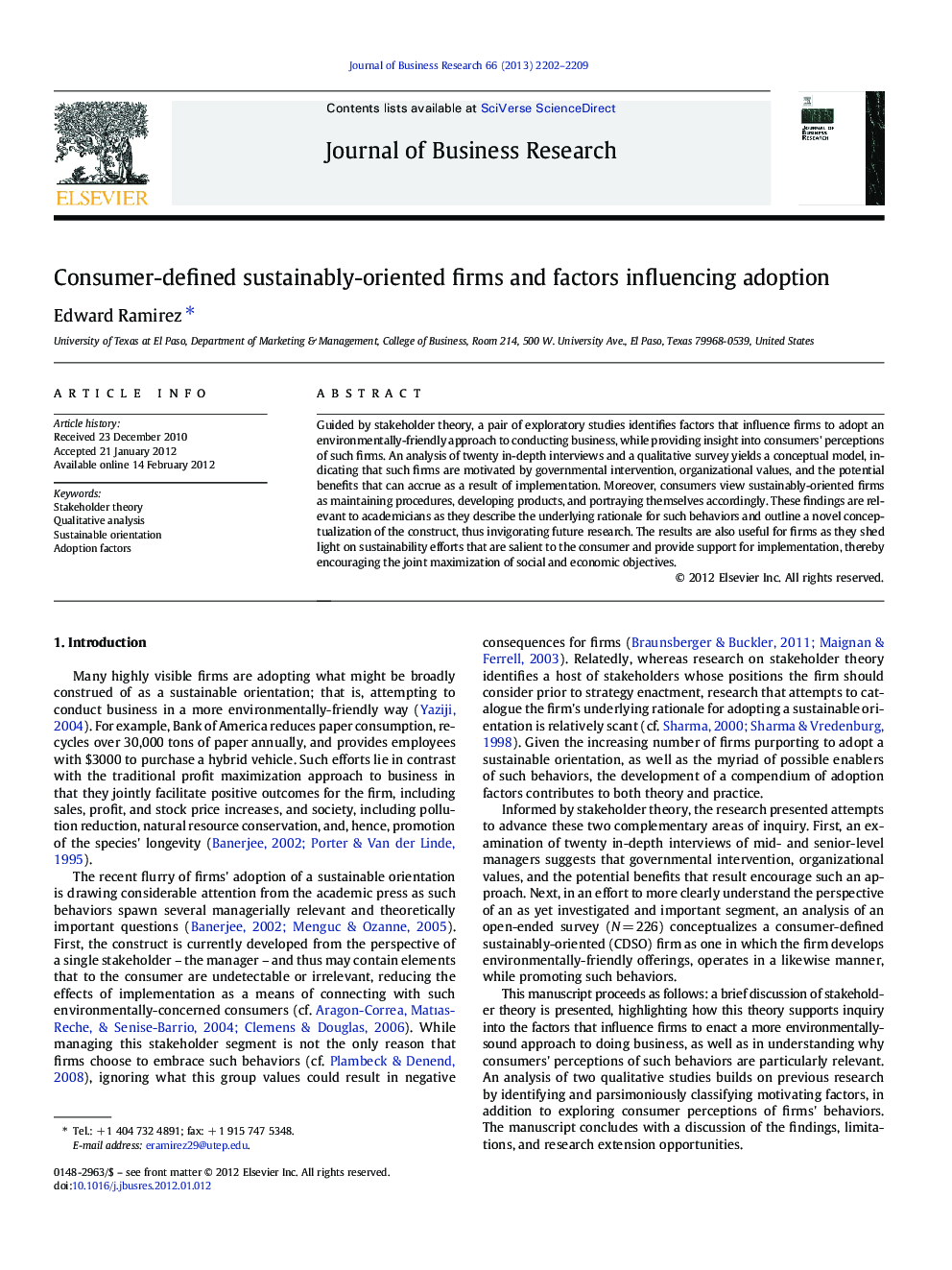| Article ID | Journal | Published Year | Pages | File Type |
|---|---|---|---|---|
| 10493004 | Journal of Business Research | 2013 | 8 Pages |
Abstract
Guided by stakeholder theory, a pair of exploratory studies identifies factors that influence firms to adopt an environmentally-friendly approach to conducting business, while providing insight into consumers' perceptions of such firms. An analysis of twenty in-depth interviews and a qualitative survey yields a conceptual model, indicating that such firms are motivated by governmental intervention, organizational values, and the potential benefits that can accrue as a result of implementation. Moreover, consumers view sustainably-oriented firms as maintaining procedures, developing products, and portraying themselves accordingly. These findings are relevant to academicians as they describe the underlying rationale for such behaviors and outline a novel conceptualization of the construct, thus invigorating future research. The results are also useful for firms as they shed light on sustainability efforts that are salient to the consumer and provide support for implementation, thereby encouraging the joint maximization of social and economic objectives.
Related Topics
Social Sciences and Humanities
Business, Management and Accounting
Business and International Management
Authors
Edward Ramirez,
